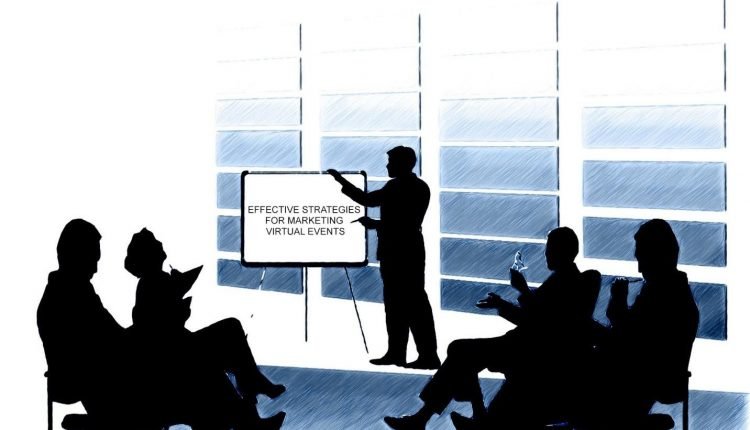10 most effective strategies for marketing virtual events
The advent of technology has opened doors for new and revolutionary ways of conducting events. Virtual or online events have become increasingly popular in the modern era and especially after the pandemic.
Virtual events allow brands and organizations to attain a global reach and interact with hundreds or thousands of people in different regions and different time zones, remotely. However, it is the planning, promotion, and execution of the event that determines its success. There are an effective and innovative event planning and promotion strategies that can be implemented and ensure that your online event won’t fade away in the digital shuffle.
Effective ways to make attendees sign up, tune in, and engage!
- An eye-catching event page
It is the place where everyone goes to gather information about an upcoming event. Various tools can be used to enhance graphics, apply professional pictures, and make the end result eye-catching and enticing. One can also use engaging clips, workshop leaders, performers, and keynote speakers to draw people in and make them sign up.
You can also embed relevant pictures, videos, and other forms of media content so that the attendees don’t have to find it elsewhere. Make sure your event page is informative and includes all the necessary details about the event.
Some of the information to include is:
- Time and date of the event
- Agenda
- Speaker bios
- Sponsor information
- Secure payment options
- Sign-up links
- Use keywords for Search Engine Optimization
Most people are familiar with keywords and use them to enhance the SEO rankings of their website and search engines.
One of the key strategies in any virtual event marketing guide is to use a keyword planning tool such as Google Ads. The tool helps discover which words are trending the most and you can use those words as keywords in your content to help direct traffic towards your virtual event promotion.
You may uncover relevant word choices with just a Google search. Say, you intend on promoting a ‘virtual live concert.’ Start by searching those words and look for similar phrases such as ‘online live show.’ The next step is to take note of a few things for each of these phrases.
- ‘People also ask’ results
- Autocompletes
- The ‘Searches related to a keyword’ at the bottom of the first SERP.
These steps will help you choose alternative words for your online promotional copy.
- Know your target demographic
It is the first step to any sort of successful virtual event planning. You must know what type of people will see your online event. A marketing campaign performs at its best when it manages to lock into the target persona you plan to serve.
So, what are the factors to consider for your target demographic?
- The age bracket, location, profession, etc.
- On what do they spend most of their time online?
- Their motivations and aspirations.
Say, you are hosting a virtual comedy show. Think about what your target audience will be able to relate to, and what they would find humorous.
The information is crucial as it will inform you about where you need to promote your event and what style of messaging you need to adopt.
After you are familiar with your target audience, you have to figure out what is the outcome you expect. Set a goal and align your marketing messages in that direction, so it will encourage your target audience to take action.
- Offer your audience a teaser
Movies release trailers to the audience for a reason. A trailer or a teaser is a marketing strategy that excites people and gives them a little taste of what’s to come. So, why wait till the day of the event to share your content? A short preview of your event will entice and draw their attention.
The people who see the teaser will want to register and stay enthusiastic about what’s to come. The enthusiasm will also spread word of mouth and may draw in more people into registration. So, spike up the audience interest with a snippet of an interview segment of your performers or speakers and share a few highlights of what to expect from the event. However, the key to a successful virtual events marketing strategy of this sort is to not share too much information. The key is to end the teaser at a place where it leaves the audience curious.
- Leverage social media
We live in a world where people spend more time on various social media platforms than the actual world around them. Hence, social media promotion is the most important way to promote events of any kind. In fact, most social media platforms serve as a virtual events platform.
There are innumerable ways to promote your events through social media. Take the initiative to post your virtual event-related news through all your company’s social media accounts.
Some of the platforms that you must use are:
- Use Facebook Events as it is free, keeps track of RSVPs, and is very easy to share.
- Add a hashtag for your event and let your promotional endeavors spread like wildfire through a mini-tweet storm.
- Use LinkedIn to promote your virtual event through ads, groups using your company page, and also on your own.
- Share cool and exciting pictures and videos on Instagram. It is ‘THE’ place to do so.
- Consistency is the name of the game
Continue to promote your event by sending direct mail to the potential attendees and stay at it till the very day of your virtual event. Try to think of better strategies such as public relations, website promotions, etc. while simultaneously implementing the ones at hand. It will help attendees stay engaged and excited about your event. If they do not receive regular reminders, they won’t show up.
Make the event seem more interesting by:
- Offering a ‘secret giveaway’ to attendees of the event.
- Add a day’s/hours/minutes/seconds countdown for the event on your official website.
So, what are you waiting for? Time is really short. So, let’s get started!


